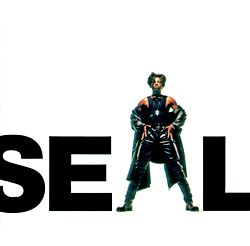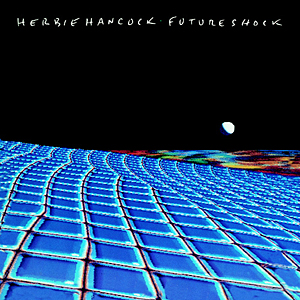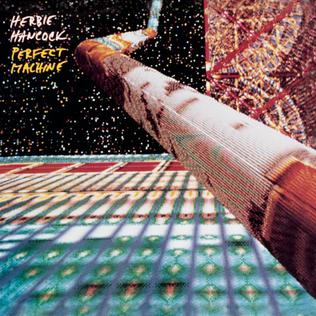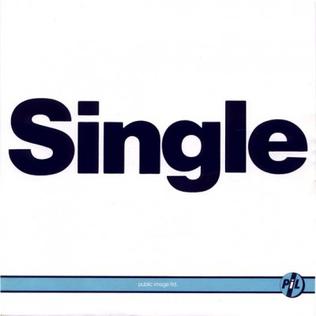Related Research Articles
A music sequencer is a device or application software that can record, edit, or play back music, by handling note and performance information in several forms, typically CV/Gate, MIDI, or Open Sound Control, and possibly audio and automation data for digital audio workstations (DAWs) and plug-ins.

The Fairlight CMI is a digital synthesizer, sampler, and digital audio workstation introduced in 1979 by Fairlight. It was based on a commercial licence of the Qasar M8 developed by Tony Furse of Creative Strategies in Sydney, Australia. It was one of the earliest music workstations with an embedded sampler and is credited for coining the term sampling in music. It rose to prominence in the early 1980s and competed with the Synclavier from New England Digital.
A music workstation is an electronic musical instrument providing the facilities of:

A sampler is an electronic musical instrument that records and plays back samples. Samples may comprise elements such as rhythm, melody, speech, sound effects or longer portions of music.
Fairlight is a digital audio company based in Sydney. In 1979, it released its Series I Fairlight CMI, one of the earliest digital audio workstations (DAWs) with a digital audio sampler. Their subsequent Series II and III CMIs featured a graphic sequencer known as Page R, during a time when most computerised music sequencers required coding skills.
An orchestra hit, also known as an orchestral hit, orchestra stab, or orchestral stab, is a synthesized sound created through the layering of the sounds of a number of different orchestral instruments playing a single staccato note or chord. The orchestra hit sound was propagated by the use of early samplers, particularly the Fairlight CMI where it was known as the ORCH5 sample. The sound is used in pop, hip hop, jazz fusion, techno, and video game genres to accentuate passages of music.

Never for Ever is the third studio album by English singer-songwriter Kate Bush, released on 8 September 1980 by EMI Records, it was Bush's first No. 1 album and was also the first album by a British female solo artist to top the UK Albums Chart, as well as being the first album by any female solo artist to enter the chart at No. 1. It has since been certified Gold by the BPI. It features the UK Top 20 singles "Breathing", "Army Dreamers" and "Babooshka", the latter being one of Bush's biggest hits. Bush co-produced the album with Jon Kelly.

The Emulator is a series of digital sampling synthesizers using floppy-disk storage that was manufactured by E-mu Systems from 1981 until 2002. Although it was not the first commercial sampler, the Emulator was innovative in its integration of computer technology and was among the first samplers to find widespread usage among musicians. While costly, its price was considerably lower than those of its early competitors, and its smaller size increased its portability and, resultantly, practicality for live performance. The line was discontinued in 2002.

Dis Is da Drum is Herbie Hancock's thirty-fourth album and his first solo album since leaving Columbia Records. Guests include saxophonist Bennie Maupin, trumpeter Wallace Roney and flautist Hubert Laws.

Revolutions is the ninth studio album by electronic musician and composer Jean-Michel Jarre, first released in September 1988. The album reached number 2 in the UK charts, Jarre's best chart position since Oxygène. The Destination Docklands concert in London coincided with the release of the album.

Seal is the eponymous title of the debut studio album by Seal, released in 1991. It contains the singles "Crazy", "Future Love Paradise", "The Beginning", "Killer" and "Violet". The album debuted at number one in the UK and went on to win Best British Album at the 1992 Brit Awards. Seal's following album, released in 1994, was also named Seal. It is usually referred to as Seal II.

"Sign o' the Times" is a song from American musician Prince's 1987 album of the same name, released as a single on February 18, 1987. The song was originally intended for two separate Prince studio albums meant to be released in 1986, both shelved: Dream Factory and Crystal Ball. Prince performed all vocals and instruments on the song. "Sign o' the Times" was reportedly written and composed on a Sunday, when Prince usually wrote his most introspective songs.

"Owner of a Lonely Heart" is a song by British progressive rock band Yes. It is the first track and single from their eleventh studio album, 90125 (1983), and was released on 24 October 1983. Written primarily by guitarist and singer Trevor Rabin, contributions were made to the final version by singer Jon Anderson, bassist Chris Squire, and producer Trevor Horn.

Future Shock is the twenty-ninth album by American jazz pianist Herbie Hancock, released in August 1983 by Columbia Records. It was his first release from his electro-funk era and an early example of instrumental hip hop. Participating musicians include bass guitarist Bill Laswell, guitarist Pete Cosey and drummer Sly Dunbar.

Sound-System is the thirtieth album by jazz pianist Herbie Hancock and the second of three albums co-produced by Bill Laswell with the ‘Rockit’ Band. Guest artists include saxophonist Wayne Shorter, guitarist Henry Kaiser, kora player/percussionist Foday Musa Suso and drummer Anton Fier.

Perfect Machine is the thirty-second album by jazz pianist Herbie Hancock. It was the third and final album in Hancock’s series co-produced by Bill Laswell. Guests include bassist Bootsy Collins.

"Rise" is a song by the English post-punk band Public Image Ltd, released as a single on 20 January 1986 by Virgin Records. It was the first single from Album, their fifth studio album.

In sound and music, sampling is the reuse of a portion of a sound recording in another recording. Samples may comprise elements such as rhythm, melody, speech, or sound effects. A sample can be brief and only incorporate a single musical note, or it can consist of longer portions of music, and may be layered, equalized, sped up or slowed down, repitched, looped, or otherwise manipulated. They are usually integrated using electronic music instruments (samplers) or software such as digital audio workstations.
Mark Ireland is an Australian artist, composer, musician, film and video maker and member of Clan Analogue the Australian Artists collective.
Kim Ryrie is an Australian synthesiser inventor who founded the audio technology company Fairlight with Peter Vogel.
References
- ↑ "Mars Lasar Synthesizes His Musical and Painting Careers". The Los Angeles Times. June 6, 1992 – via Newspapers.com.
- ↑ "Olympus". Realmusic.
- 1 2 3 4 5 6 7 "Mars Lasar – About". marslasar.com. Retrieved 2019-12-13.
- 1 2 "About". Mars Lasar Studio – Fine Art Photography. Retrieved 2019-12-13.
- 1 2 3 4 5 "Mars Lasar: Quantum Tracks". www.ascap.com. September 1, 2007. Retrieved 2019-12-13.
- ↑ "Lasar, Mars | Encyclopedia.com". www.encyclopedia.com. Retrieved 2019-12-05.
- 1 2 3 "Mars Lasar | New Age Musician". www.realmusic.com. Retrieved 2019-12-05.
- ↑ Mars Lasar: Fairlight CMI feature, Countdown 1983 , retrieved 2019-12-05
- 1 2 3 "Mars Lasar | Biography & History". AllMusic. Retrieved 2019-12-13.
- ↑ "Mars Lasar (Holiday)". Pandora. Retrieved 2019-12-13.
- ↑ "Sounds Like Australia". NFSA Online Shop. Retrieved 2019-12-05.
- ↑ "Sounds Like Australia", YouTube, retrieved 2019-12-05
- 1 2 "Interview with Mars Lasar, May 2008". mainlypiano.com. Retrieved 2019-12-05.
- ↑ "APM Music – Crazy by Seal". www.apmmusic.com. Retrieved 2019-12-05.
- ↑ "APM Music – Mars Lasar". www.apmmusic.com. Retrieved 2019-12-13.
- 1 2 "Mars Lasar Albums and Discography". AllMusic .
- ↑ "Mindscapes Beyond". MarsLasar.com.
- ↑ "Multiverse". MarsLasar.com.
- ↑ "Ultra Chill". MarsLasar.com.
- ↑ DyanG (November 21, 2021). "Mars Lasar | Coastal Escape | Album Review". New Age Notes.